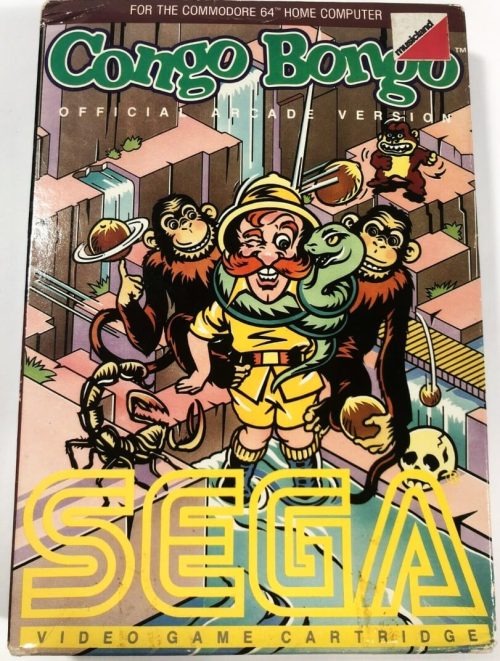
Congo Bongo is an arcade game that was produced by Sega and released in 1983. While not a sequel it was the successor to Donkey Kong in that it was the next big project Sega worked on after Donkey Kong’s success and they wanted to capitalize on the successful gorilla. Congo Bongo was played from an isometric point of view but had many of the same game play mechanics as Donkey Kong.
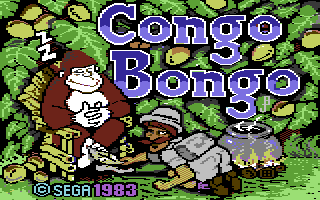
In Congo Bongo, you control a safari explorer exploring the jungle. However, Bongo the ape wants to keep you out and enlists the help of his friends to do so. There are four stages: 1) avoid coconuts thrown by Bongo and his three monkey friends; 2) Ride on the back of hippopotamuses to cross a swamp infested with snakes and scorpions; 3) Cross a plain ducking in holes along the way to avoid charging rhinoceroses; and 4) Cross another swamp with lily pads, fish and hippos to reach a gate guarded by rhinos that leads to Bongo in his hot tub. After this, the stages repeat with increased difficulty.
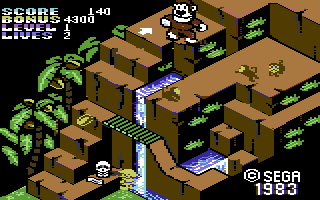
Congo Bongo never achieved nearly the success of Donkey Kong but it was fairly well known, in part because of the wide variety of systems it was ported to. These include the Apple II, SG-1000, MSX, Intellivision, ColecoVision, Commodore 64 (cartridge then disk), VIC-20, DOS, Atari 2600, Atari 5200, Atari 8-bit computers, and the TI-99/4A.
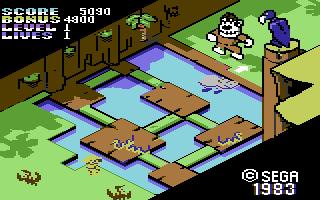
Congo Bongo received mixed reviews. The reviews for the ColecoVision, Atari 5200 and Intellivision versions were mostly positive while reviews for most of the other versions were decidedly less so. I think in large part (maybe except for the 2600 version) this came down to difference in opinions between reviewers on the game in general vs. it being significantly better on any particular platform.
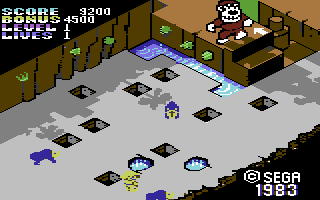
The Commodore 64 version is interesting in that there are really two different ports. The first port was released in cartridge and tape format. The second port was released on disk. The cartridge/tape version only has two of the four levels while the disk version contains all four levels and better graphics. I’m not entirely sure about game play differences but if I had to guess, I would bet the disk version is a little better in that regard as well.
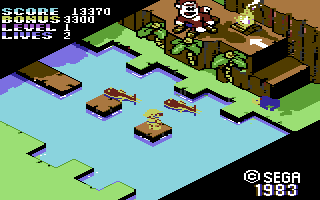
If you do want to give Congo Bongo a try, using MAME to emulate the original arcade version is probably the best way to go. If you prefer a home version, then you can probably pick your favorite home system and give it a try on that. Most seem to be of similar quality with perhaps the exception of the Atari 2600 version which in at least one magazine beat out E.T. as worst game of the year in 1983. Keep in mind though that some versions do not have all of the levels. Many only have 2 and some have 3. I was never a big fan of Congo Bongo but then I was never that into the much better Donkey Kong either.
Screen shots above are from the Commodore 64 version of the game (disk version) which would be my preferred home version.